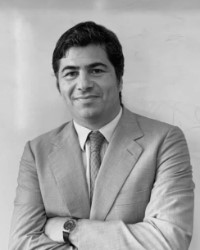White-Collar Crime 2025
Argentina
Trends and Developments
The Role of the Financial Intelligence Unit (FIU) in Argentina
In the late 20th century, as the fight against money laundering (ML) and terrorism financing (TF) intensified, states recognised the need for a specialised authority to bridge the private sector and judicial bodies. This led to the creation of Financial Intelligence Units (FIUs), whose central task is to receive and analyse reports of suspicious operations related to ML, TF, and the proliferation of weapons of mass destruction (PWMD), subsequently forwarding them to the competent judicial authorities. While each country structures its FIU differently ‒ ranging from administrative and law-enforcement models to judicial or hybrid types ‒ these agencies share the distinctive feature of co-operating with both domestic institutions and international counterparts. Originally established in the early 1990s, FIUs were consolidated as a global standard when the Financial Action Task Force (FATF) incorporated explicit recommendations on their functioning in 2003. Since then, their role in the prevention and prosecution of financial crime has steadily expanded and strengthened.
In 2000, Law No 25.246 created Argentina’s Unidad de Información Financiera (Financial Intelligence Unit, UIF). This autonomous and self-sufficient body is directly accountable to the National Congress and falls under the authority of the Ministry of Justice. It is in charge of the analysis, processing and transmission of information aimed at preventing and combating ML, TF and PWMD.
The UIF divides its tasks into three main areas. The first is prevention; it regulates the obligated entities and ensures their compliance with Law No 25.246. It can also impose fines or other punitive measures. The second area is financial intelligence, which consists of receiving information from reporting entities, such as banks, and analysing suspicious transactions to decide whether they should be reported to the Ministry of Justice. Lastly, until recently, the UIF had the authority to investigate and possibly prosecute entities, acting as a plaintiff (querellante) in court proceedings alongside the prosecutor.
Argentina’s UIF is similar in structure to those in most other countries, except for the UIF’s previous ability to act as a plaintiff. This was noted in the last 2024 FATF Mutual Evaluation of Argentina, in which the FATF raised concerns about the independence of the UIF in three different areas: the staff turnover, the use of querellante in certain corruption-related cases and the role of the Advisory Board.
As mentioned previously, the UIF is directly accountable to the National Congress. This means that the National Executive Power oversees the nominating and removal of the Head and Deputy Head of the UIF. The remaining UIF staff are also public servants, and their recruitment and dismissal are governed by public processes and established rules applicable to all public servants. Although the processes used for appointing and dismissing staff are quite complex and do not occur frequently, the FATF noted an important and systematic turnover of FIU staff each time the Executive Power changed.
The FATF also questioned the impartiality of the UIF in cases where it was acting as a querellante. This was particularly noticeable in corruption cases, eg, cases targeting the former government were often investigated immediately after a change of government, even though the alleged facts had been publicly known for some time. However, in cases involving the newly elected Executive Power, the recently nominated members of the UIF would sometimes dismiss charges that had been previously brought by the former UIF staff.
The final issue the FATF addressed was the part played by the Advisory Board of the UIF. The UIF’s structure allows for the Head of the UIF (the Presidency) to be assisted by an Advisory Board of seven officials. These officials are appointed by the National Executive Power and represent seven departments (the Central Bank of Argentina, the Federal Administration of Public Revenues, the National Securities Commission, the Anti-Narcotics Prevention and Repression Secretary, the Ministry of Justice, the Ministry of Finance and the Ministry of Internal Affairs). This Board can intervene in any decision the President of the UIF is required to make and in matters requested by the President. The FATF noted that the part played by this Board could raise concerns regarding the UIF’s independence; however, it concluded that there was no concrete evidence of any interference in practice.
For all these reasons, although the overall effectiveness of the system was not called into question, the FATF recommended a change in the UIF’s organisational structure so that its autonomy and operational independence would not be undermined.
The Change of Status of “Querellante” for the UIF and Consequences in the Jurisprudence
In the Argentine criminal system, the querella constitutes the procedural right that allows the victim of a crime, their legal representatives, or heirs to actively intervene in the criminal process as a private accuser. Its purpose is to guarantee the victim’s participation in criminal prosecution, complementing the public action exercised by the Public Prosecutor’s Office. In this way, the complainant may advance the investigation, propose and produce evidence, request measures, file charges, and appeal judicial decisions, seeking both the punishment of the accused and the protection of their own interests. This institution, primarily governed by the National Code of Criminal Procedure (Articles 82 et seq), reflects the importance of recognising the victim’s active role within the process, in line with the principles of access to justice and effective judicial protection.
Following the FATF’s Evaluation of 2024, on 16 April 2025 the National Executive Power of Argentina adopted Decree 274/2025, which stated, among other things, that the UIF would no longer have the authority to act as a querellante (plaintiff) in cases involving ML, TF and PWMD.
In this sense, the government redefined the functions, objectives and powers of the UIF to prevent “overlapping” powers with other state agencies, such as the Ministry of Justice. In doing so, it repealed Decree No 2226/08, which dated back to 2008, under which the UIF had been granted the role of a prosecutor in the investigation of offences related to the concealment and laundering of assets of illegal origin. The Executive Power emphasised that the prosecutorial role undertaken by the UIF was an isolated case among the FIUs worldwide and it reiterated that it is the Ministry of Justice that is responsible for promoting the administration of justice in defence of legality and the general interests of society.
Additionally, the Decree granted the UIF the power to exchange information with other bodies or public entities if the UIF considers that such information may assist the receiving authorities in clarifying certain cases or when it may be relevant to issues concerning ML, TF or PWMD.
This change of status raises a key question for Argentinian courts as the UIF is currently acting as a querellante in an important number of ongoing cases. Since Decree No 274/2025 does not explicitly state the effect of the change on ongoing cases, eg, if the effect applies retroactively, judges are tasked with deciding whether the UIF should continue to act as a querellante in ongoing proceedings. To date and from what can be observed in recent jurisprudence, there is no clear guidance from the courts on how this issue should be addressed.
On the one hand, one could argue that, since Decree No 274/2025 does not differentiate between past and future cases, its effect should apply to all ongoing cases, and therefore retroactively. This raises the issue of a potential lack of standing to sue. Indeed, it is agreed that legal capacity is a requirement for the admissibility of criminal proceedings, but it can also be argued that this capacity should be maintained throughout the entire trial.
According to Decree No 274/2025, the UIF would no longer have legal capacity, since it is no longer entitled to act as a party in the court proceedings. This interpretation signifies that the cases have been brought by an illegitimate party ‒ the UIF ‒ and should be dismissed.
The Tribunal Oral en lo Penal Económico of the City of Buenos Aires (Oral Criminal Court for Financial Crimes) has ruled in this regard, arguing that, if the UIF is not removed from its role as querellante, it would violate the principle of equality in proceedings in which the UIF is currently acting as prosecutor. The defendants would face an additional prosecutor, unlike in cases initiated after the issuance of the Decree. This raises the question of the equality of arms in criminal proceedings, with the defendants having to counter arguments from the Ministry of Justice, the UIF and, in some cases, the civil parties as well.
In support of this position, the Federal Court of Cassation, Chamber I, ruled on 30 May 2025 that the UIF lacks the authority to bring charges in such proceedings, as this provision is strictly procedural in nature and therefore fully applicable. Consequently, as the UIF does not have the status of a plaintiff, it lacks the legal capacity to act in ongoing proceedings.
On the other hand, Decree No 274/2025 could also be interpreted as meaning that the UIF can no longer act as querellante in future cases but that it will maintain its status in ongoing proceedings, until they are concluded. This interpretation would help to maintain some legal certainty and allow the UIF to close all the cases it has been investigating, in some instances for many years. The UIF has argued for a non-retroactive effect of the Decree, a position which has been approved by some judges.
In resolution No 33/2025 of 23 May 2025, the Federal Oral Court of Concepción del Uruguay held that there is no provision mandating the removal of the UIF in criminal proceedings in which it is already constituted as a plaintiff. Excluding the UIF at that stage of the proceedings would therefore imply extending the effects of Decree No 274/2025 beyond what is established in the text of the regulation.
On 19 June 2025, the National Chamber of Appeals in Economic Criminal Matters, Chamber A,CPE 1002/2016, also stated that, as the UIF’s authorisation to bring charges has been revoked, it can only be concluded that the UIF is barred from intervening as a plaintiff from the indicated date onwards. However, this does not mean that the UIF’s role should be restricted or rendered ineffective in prior cases. On the contrary, if the Executive Branch had intended such a retroactive effect, it would have expressly provided for this.
Conclusion
As highlighted in this article, the role FIUs play around the world is key to combating corruption, ML, TF and PWMD. In this sense, Argentina’s adoption of Decree No 274/2025, in response to the FATF Mutual Evaluation of 2024, marks a significant shift in the role played by its FIU, the UIF.
While the UIF will maintain its key role in combating financial crime, its functions are now more closely aligned with those of other FIUs around the world. While governments usually reserve prosecutorial powers for the judicial or law enforcement authorities, the UIF in Argentina has differentiated itself from the rest of the FATF member countries by acting as a plaintiff in many cases, despite being an independent body. The removal of its ability to act as a querellante was necessary to prevent any conflict with its independence and to ensure Argentina’s compliance with international standards. However, this change has raised questions which will undoubtedly engage Argentinian judges in the coming months.
The Decree’s lack of clarity, especially regarding its retroactive effect, has created uncertainty in ongoing legal proceedings. Diverging court rulings reflect a tension between the principles of procedural fairness, legal certainty, and the UIF’s evolving institutional framework. Some courts have stressed the importance of upholding equality of arms and have removed the UIF from ongoing trials, while others argue for preserving its standing in cases already underway to prevent undermining years of investigative work.
Ultimately, the debate highlights the challenges of reconciling legal norms, institutional reform, and the fight against financial crime. As jurisprudence continues to evolve, it will be crucial for the judiciary, the legislative, and the executive power to provide clearer guidance on the UIF’s role moving forward, ensuring both compliance with international standards and the integrity of Argentina’s criminal justice system.
Estudio Durrieu
Suipacha 1380,
5th Floor,
Autonomous
City of Buenos Aires
Argentina C1011ACD
+54 11 3984 0000
+54 11 3984 0000
durrieu@durrieu-lex.com www.durrieu-lex.com



